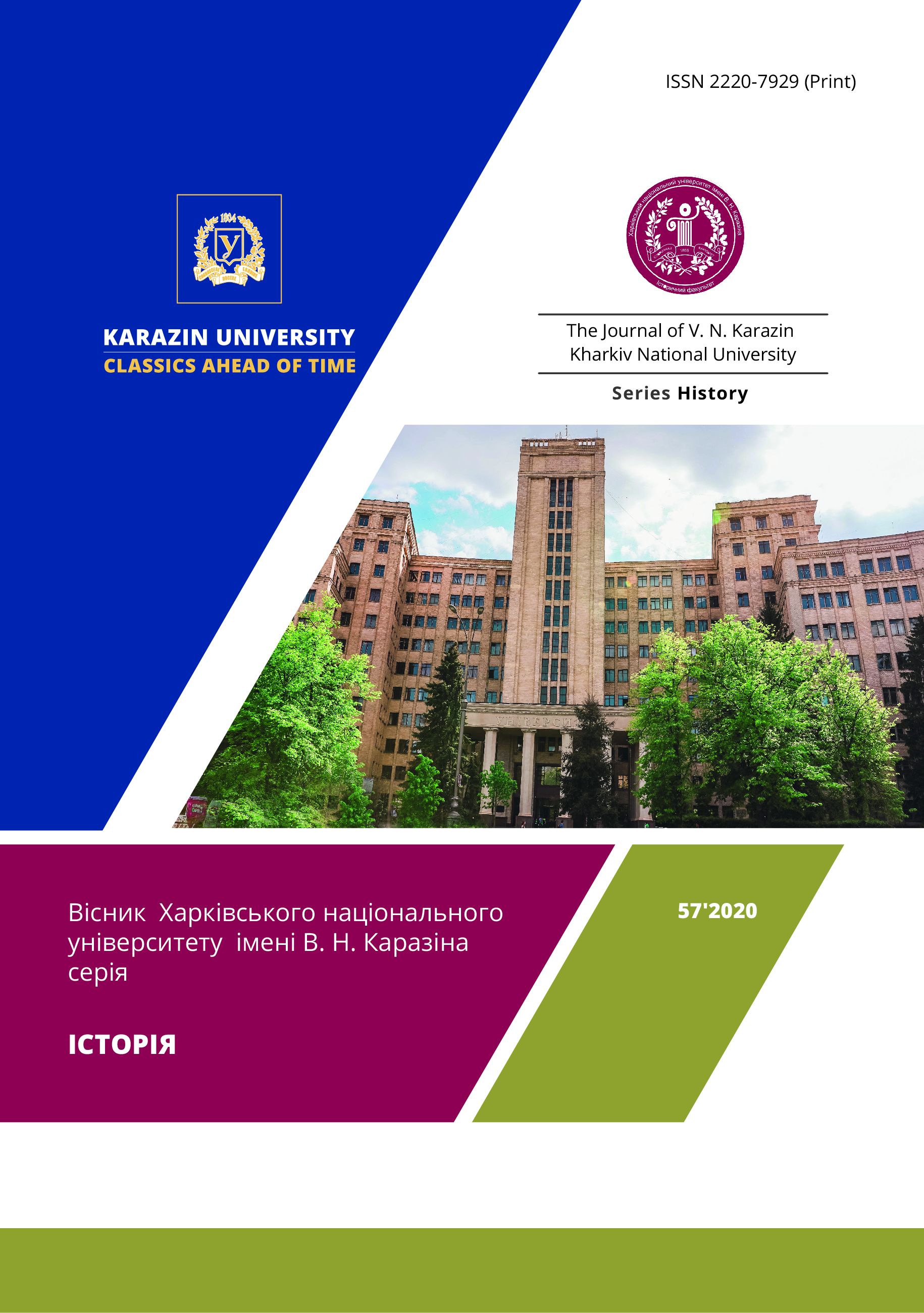'Slow Food' in Ukraine and the Narrative of Odessa Local Cuisine
Abstract
One of the important elements of national, urban and biosphere identity is the local cuisine, as a code that forms and translates certain values. Recently, in the US and Europe, the direction of interdisciplinary research has become relevant, which combining the problems of food, environmental ethics and safety. In the context of the COVID-19 coronavirus pandemic, the risk of food insecurity is growing, especially in countries dependent on food imports. A pandemic offers the opportunity to transform food systems. Agribusiness is aimed at uninterrupted supply of cheap, unified food. The world trade market is quite pragmatic, it responds to the needs of trends in Western society, because it is a source of income and the basis of modern resource allocation. Concerned about the potential threat to food security during the COVID-19 pandemic, many countries and organizations are working hard to provide affordable food to consumers who can still access and buy food despite restrictions on movement and loss of income, as well as safe rural management farms. The purpose of the article is the implementation of the environmental aspects of identity in modern urban research. The article deals with the development of the ‘Slow Food’ movement in Ukraine. The movement supports farmers, studies and promotes local products, traditional recipes, and supports the biodiversity of species. In Ukraine, volunteers of the movement for more than ten years have been proving that food should be produced not only in environmentally friendly conditions, but also without harm to the environment, wildlife, society. Dnipro, Kyiv, Odesa, Poltava, Rivne, Simferopol and Chernihiv represent the cities of Ukraine. Bessarabia, Volyn, Galicia, Carpathians, Crimea and Podillia - present the ‘culinary dialects’ of the regions. Unlike other countries, Ukrainian primary centers are informal associations of enthusiasts who, at their own expense, embody the Slow Food philosophy and take part in the preserving and promotion of traditional foods. But most importantly is a movement of volunteers to help Ukraine to save landscapes and food independence which is based on on local products. Environmental aspects of urban life, the question of what plans we build them , for a long time they remained secondary to political and socio-economic problems. There are many initiatives now and the townspeople are addressing these issues, but they are not yet at the time. Odessa may become one of the sitopic cities of Ukraine. The creation of new lokal spaces and practices for the social cohesion and safe food for Odessa citizens contributes to the successful implementation of Cittaslow principles. An analysis of the trend towards more conscious consumption and understanding of the problems in the current food system will contribute to the development of gastronomic tourism. It is proved that Odessa can become one of the sitopic cities of Ukraine. Due to the creation of new lokal spaces and practices aimed at creating social cohesion and safe food for Odessa citizens, the principles of Cittaslow, a slow and environmentally friendly city, are being successfully implemented.
Downloads
References
Богданець, С. «Рибку пекла, сковорідка текла» – український гастроеротичний словник. Їzhakultura, 26 серпня, 2019. Available at:
Брайченко, О., Богданець, С. У пошуках диких смаків: гастротуризм та кухня українських «ковбоїв». Їzhakultura, 30 квітня, 2019. Available at:
Брайченко, О. Кулінарна еміграція: українська кухня на сторінках американського діаспорного часопису «Наше життя». Їzhakultura, 23 березня, 2019. Available at:
Бурда, Б. Разговор вокруг еды. Харьков, 2002.
Бурда, Б. Угощает Борис Бурда. Таллин, 1999.
COVID-19 удвоит число людей, сталкивающихся с продовольственными кризисами, если не будут предприняты немедленные действия. Available at:
Цвек, Д. У будні і свята. Львів, 1992.
Данилова, Е. С., Гердева, А. Н. Психолого-историческая реконструкция через литературные тексты «одесской кухни» как фактор влияния на формирование национальной ментальности. Вісник Одеського національного університету. Серія: Психологія, т. 20, вип. 1, 2015, с. 13-21.
Довгополова, О. Одесский миф в «предприятиях памяти». Докса, вип. 1, 2017, с. 180-97.
Губарь, О. Функции Одесского строительного комитета в контексте истории градостроительства Одессы. Дерибасовская-Ришельевская: одесский альманах, вып. 35, 2008, с. 6-14.
Клиновецька, З. Страви й напитки на Україні. Київ, 1991.
Кулешова, Е., Наговицина, Е. Одесская кухня в эмиграции. Таллинн, 2009.
Либкин, С. Моя одесская кухня. Москва, 2014.
Lim, CJ. Food City. New York, 2014.
Мусиездов, А. А. Социологическая концепция городской идентичности. Харьков, 2013.
Повзуча революція. Ресторани України вливаються в рух Slow Food. НВ Style, 12 березня, 2019. Available at:
Соболева, О. Кримськотатарська кухня. Київ, 2019.
Стил, К. Голодный город. Как еда определяет нашу жизнь. Москва, 2014.
Стрепетова, С. «Ковчег Вкуса» остановился в Вилково. 2018. Available at:
Терещук, Г. Галицька кухня є особливим елементом європейської кухні – Маріанна Душар. Радіо Свобода, 28 січня, 2019. Available at:
Тихонова, Н. А. Стереотипы в отношении гастрономии как маркеры культурной идентичности. Исторические, философские, политические и юридические науки, культурология и искусствоведение. Вопросы теории и практики, № 6 (12), ч. 3, 2011, c. 183-85.
В Одессе состоялся Фестиваль форшмака. 25 октября, 2017. Available at:
Copyright (c) 2020 Tykhomirova F. A.

This work is licensed under a Creative Commons Attribution 4.0 International License.
Authors who publish with this journal agree to the following terms:
- Authors retain copyright and grant the journal right of first publication with the work simultaneously licensed under a Creative Commons Attribution License that allows others to share the work with an acknowledgement of the work's authorship and initial publication in this journal.
- Authors are able to enter into separate, additional contractual arrangements for the non-exclusive distribution of the journal's published version of the work (e.g., post it to an institutional repository or publish it in a book), with an acknowledgement of its initial publication in this journal.
- Authors are permitted and encouraged to post their work online (e.g., in institutional repositories or on their website) prior to and during the submission process, as it can lead to productive exchanges, as well as earlier and greater citation of published work (See The Effect of Open Access).




